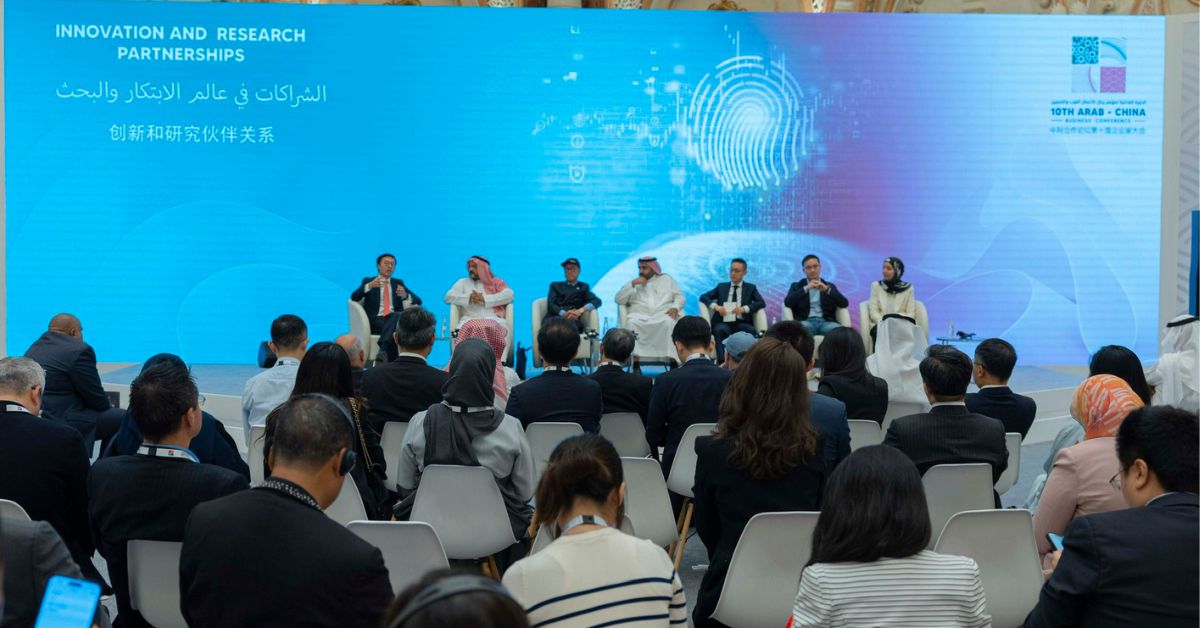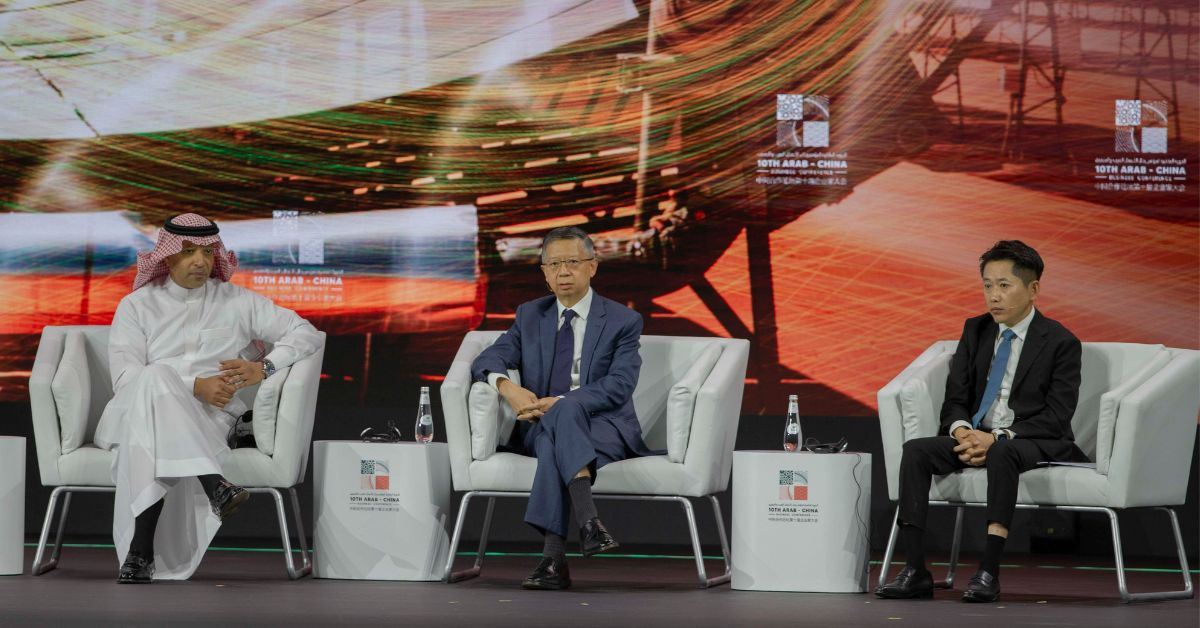Riyadh — The 10th Arab-China Business Conference, hosted by the Kingdom of Saudi Arabia, kicked off with a successful first day as 30 investment agreements were signed, totaling over $10 billion (SAR37.5 billion).
The agreements span a wide range of sectors, including technology, renewables, agriculture, real estate, minerals, supply chains, tourism, and healthcare.
With an extensive agenda, the conference attracted a diverse array of participants, including over 3,500 business leaders, innovators, and decision-makers from more than 26 countries.
Also Read 10th Arab-China Business Conference opens in Riyadh
Panel discussions, workshops, meetings, and side events covered significant topics such as social and environmental responsibility, governance, and supply chain resilience, cementing the conference’s reputation as a prominent platform for collaboration and investment opportunities.
The meeting takes place against the backdrop of growing commercial and diplomatic ties between Beijing and Middle Eastern countries. Notably, a recent breakthrough diplomatic effort brokered by China led to a significant improvement in relations between regional powerhouses Iran and Saudi Arabia.
This year marks Saudi Arabia’s inaugural hosting of the conference, which spans two days and brings together government and business officials from both China and Arab countries, as stated by the Saudi investment ministry.
The first day witnessed the signing of $10 billion in investment agreements, with the majority allocated to projects within Saudi Arabia or involving Saudi firms and government entities.
Among the noteworthy agreements is a $5.6 billion memorandum of understanding between the Saudi investment ministry and Human Horizons, a Chinese manufacturer of electric and self-driving cars.
A considerable portion of the total investment sum is allocated to the memorandum of understanding, in addition to a separate “cooperation agreement” and a “framework agreement” involving various companies, according to the official statement.
The agreements cover diverse sectors, such as technology, agriculture, renewable energy, real estate, natural resources, and tourism.
Food security
A memorandum of understanding (MoU) was signed between the Saudi Ministry of Environment and the Beijing Institute of Genomics.
The signing – witnessed by Saudi Deputy Minister of Environment, Water, and Agriculture Eng. Mansour bin Hilal Al-Mushaiti — aims to facilitate collaborative initiatives and projects between the two parties.
The primary objective of the MoU is to strengthen and advance research, innovation, and entrepreneurship in sectors under the Ministry’s purview. Dr. Abdulaziz bin Malik Almalik, Undersecretary for Research and Innovation, represented the Ministry in signing the MoU, while the CEO of the Beijing Institute of Genomics signed on behalf of his organization.
Under the terms of the agreement, the Ministry and the Institute will join forces in the areas of scientific research, technology transfer, training, education, and industrial development in agricultural genetics and biotechnology. These collaborations aim to contribute to bolstering food security and environmental preservation in the Kingdom of Saudi Arabia.
Furthermore, the MoU seeks to promote the utilization of advanced genomics technologies and the application of biotechnology solutions in the agricultural domain. It also emphasizes the significance of leveraging big data analysis capabilities in these fields.
The agreement paves the way for discussions on the establishment of a national research and development platform in genetics and biotechnology, demonstrating a commitment to fostering innovative approaches. The Beijing Institute of Genomics will serve as a technological partner for the Ministry, particularly in the field of biotechnology.
Shared commitment
This collaboration highlights the shared commitment of Saudi Arabia and China to leveraging scientific advancements and technological expertise to address environmental and agricultural challenges, further strengthening bilateral relations between the two nations.
During the conference’s opening ceremony, Saudi Foreign Minister Prince Faisal bin Farhan emphasized the potential for increased trade and economic ties between China and Arab countries, viewing the gathering as an opportunity to forge a shared future that benefits both peoples.

In response to criticism from the United States regarding Chinese-Saudi relations, Saudi Energy Minister Prince Abdulaziz bin Salman brushed it off, stating, “I actually ignore it.” He added that business people will seize opportunities wherever they arise.
On a recent visit to Riyadh, US Secretary of State Antony Blinken reassured that the United States was not urging countries to choose between itself and China, emphasizing the importance of maintaining friendly relations with both nations.








